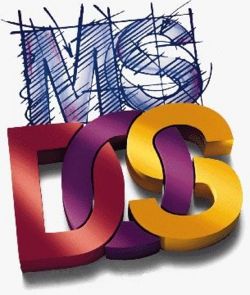- Dr-DOS Wiki (Club Dr-DOS).
- PXE booting DR-DOS 7.1.7 in a VM From theDR-DOS/OpenDOS enhancement project http://www.drdosprojects.de/.
- MS on Trial One of the claims by Caldera that Microsoft wanted dismissed concerned intentional incompatibilities between Windows and DR-DOS. David Cole and Phil Barrett exchanged emails on 30.
DR-DOS is an MS-DOS compatible operating system from Digital Research that evolved from their earlier CP/M-86 based products Concurrent DOS and DOS Plus.
I'm looking for a recent and free version of DR-DOS.It's kind of complicated, and if I have this right:
Digital Research made CP/M which was popular, but IBM didn't like the DRI terms and picked Microsoft to develop PC-DOS for them. This was based on 86-DOS formerly known as QDOS. Eventually IBM agreed to sell CP/M for PCs and DRI priced CP/M-86 at 4x the price of PC-DOS or MS-DOS. Eventually they saw that this wasn't working and made an MS-DOS compatible OS called DR-DOS. Eventually it rocked with a GEM interface and all that. But none of that mattered.
Summary: Digital Research created DR DOS as an compatible alternative to MS/PC-DOS. It was purchased by Novell, and renamed Novell DOS, then purchased by Caldera and named OpenDOS. Devicelogics have released a new version of DR-DOS (DR-DOS 8.0) but so far it is not available for free download. Custom Bootdisks Plain MS-DOS 6.22 Bootdisk with no additional files ~ For loading Flash BIOS updates (Obtain BIOS update from relevant source and copy to disk). Christoph Fuchs's Unofficial DR-DOS Resources has the complete DR-DOS documentation library, other info and tools. The new Digital Research has CP/M manuals and other info. Enhanced DR-DOS — Updated, open source derivative of the Digital Research-Novell-Caldera OS.
Now DRI was sold to Novell when Novell decided they needed to kill Microsoft because Windows 3.1 supported incompatible networking. This had nothing to do with Digital Equipment Corporation suing Intel and winning but loosing so much money it had to sell things to... Intel, because despite the name, DRI was not owned by DEC. And so Novell released Novell DR-DOS 7. Since they also got involved with Linux and other stuff they got bored of DOS and sold it to Caldera.
When Windows 95 wouldn't run on DR-DOS, Caldera sued Microsoft. I think they sort of won that one with a settlement. Caldera thought they could do more with DR-DOS if it was open sourced. So they released OpenDOS and Caldera Open DR-DOS. This was released as versions 7.01 and 7.02. Mysteriously they decided to not make 7.03 open source. And then they thought it made more sense on embedded devices and moved it to a division that became Lineo.
Dos Free Download
Lineo released a couple versions of 'Caldera' DR-DOS 7 too. They might have been kinda buggy. Lineo sort of collapsed, and metamorphosed into DeviceLogics which released DR-DOS 8.
Now the confusing parts are:
- What happened to 8? at drdos.com you can only get 7.03 and it costs money?
- What happened to the source for 7.01 and 7.02? And also the binary distribution?
- What's different in 8, and 7.03 that would be missing from the Open versions?
- All this aside, are any of these version better than FreeDOS is now?
2 Answers
The best answer is given by the Wikipedia:
In 2002, Lineo was bought out, and some of Lineo's former managers purchased the name and formed a new company, DeviceLogics. They have continued to sell DR-DOS for use in embedded systems. DR-DOS 8.0 was released on 30 March 2004 featuring FAT32 and large disk support, the ability to boot from ROM or Flash, multitasking and a DPMI memory manager. This version was based on the kernel from version 7.03. The company then split into Devicelogics Inc. and DRDOS Inc, which released DR-DOS 8.1 (with better FAT32 support) in autumn 2005. This version was not based upon version 8.0, but was a complete rewrite. Both 8.0 and 8.1 have now been pulled (because of the discoveries outlined below), and replaced with Caldera DR DOS 7.03.
Aside from selling copies of the operating system, the DR DOS Inc. website lists a buyout option for DR DOS; the asking price is $25,000.
The OpenDOS 7.01 source code is still actively being developed by The DR-DOS/OpenDOS Enhancement Project, founded in July 2002 in an attempt to bring the functionality of DR-DOS up to parity with modern PC operating systems. The project's efforts have resulted so far in adding native support for large disks (LBA) and the FAT32 filesystem. There were also several other enhancements, including improved memory management and support for the new FAT+ filesystem extension which allows files of almost 256 GB in size on normal FAT partitions. The project remains in active development as of 2008.
In October 2005, it was discovered that DR-DOS 8.1 included several utilities from FreeDOS and other sources and that the kernel was an outdated version of the Enhanced DR-DOS kernel. DR-DOS Inc. failed to comply with the GNU General Public License (GPL) by not crediting the FreeDOS utilities to their authors and including the source code. After complaints from FreeDOS developers (including the suggestion to provide the source code, and hence comply with the GPL), DR DOS Inc. instead pulled all 8.x versions (including the unaffected DR-DOS 8.0) from their website.
ChrisInEdmonton ChrisInEdmonton
ChrisInEdmonton
You might be able to get a free version of DR. DOS by getting a version of Novell NetWare. It runs on top of DR. DOS in versions 2.0 and 3.0 I believe.
The first version of NetWare I used actually needed a boot floppy with DR. DOS on it to get the NetWare Server to come up.
AxxmasterrAxxmasterrCaldera Dr Dos Download
